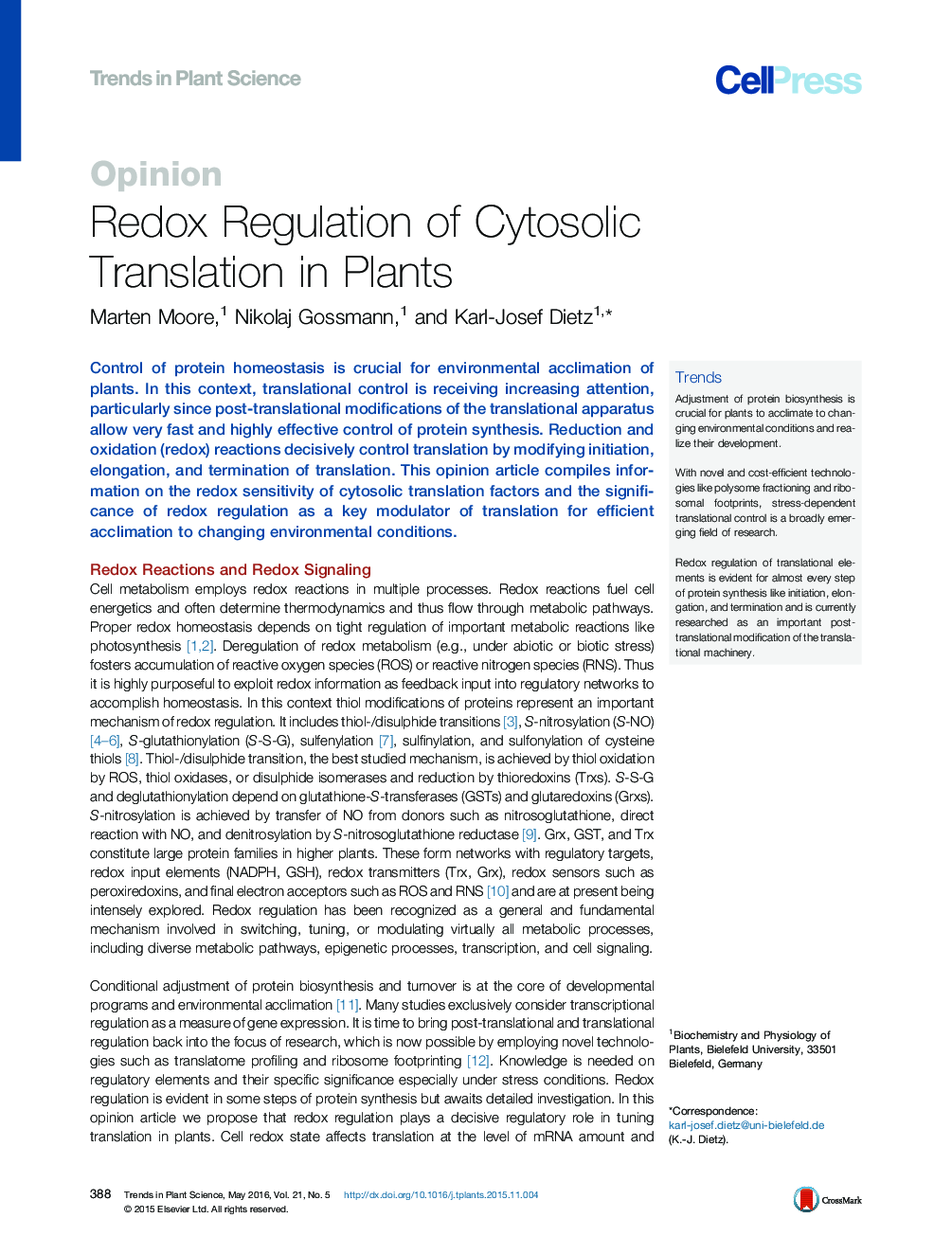| Article ID | Journal | Published Year | Pages | File Type |
|---|---|---|---|---|
| 2825719 | Trends in Plant Science | 2016 | 10 Pages |
Control of protein homeostasis is crucial for environmental acclimation of plants. In this context, translational control is receiving increasing attention, particularly since post-translational modifications of the translational apparatus allow very fast and highly effective control of protein synthesis. Reduction and oxidation (redox) reactions decisively control translation by modifying initiation, elongation, and termination of translation. This opinion article compiles information on the redox sensitivity of cytosolic translation factors and the significance of redox regulation as a key modulator of translation for efficient acclimation to changing environmental conditions.
TrendsAdjustment of protein biosynthesis is crucial for plants to acclimate to changing environmental conditions and realize their development.With novel and cost-efficient technologies like polysome fractioning and ribosomal footprints, stress-dependent translational control is a broadly emerging field of research.Redox regulation of translational elements is evident for almost every step of protein synthesis like initiation, elongation, and termination and is currently researched as an important post-translational modification of the translational machinery.
